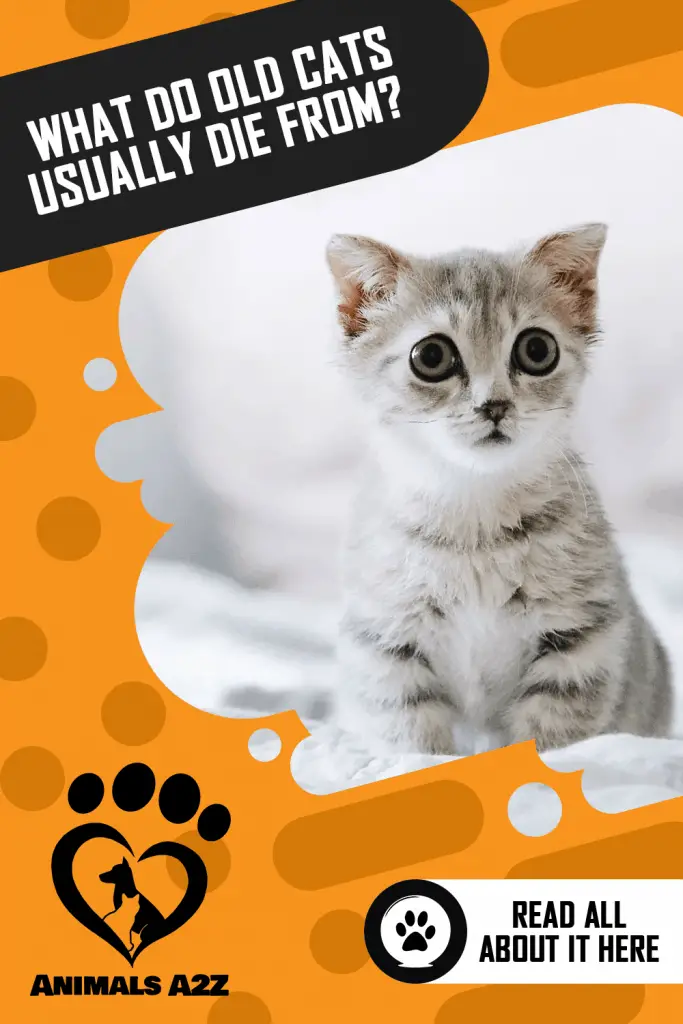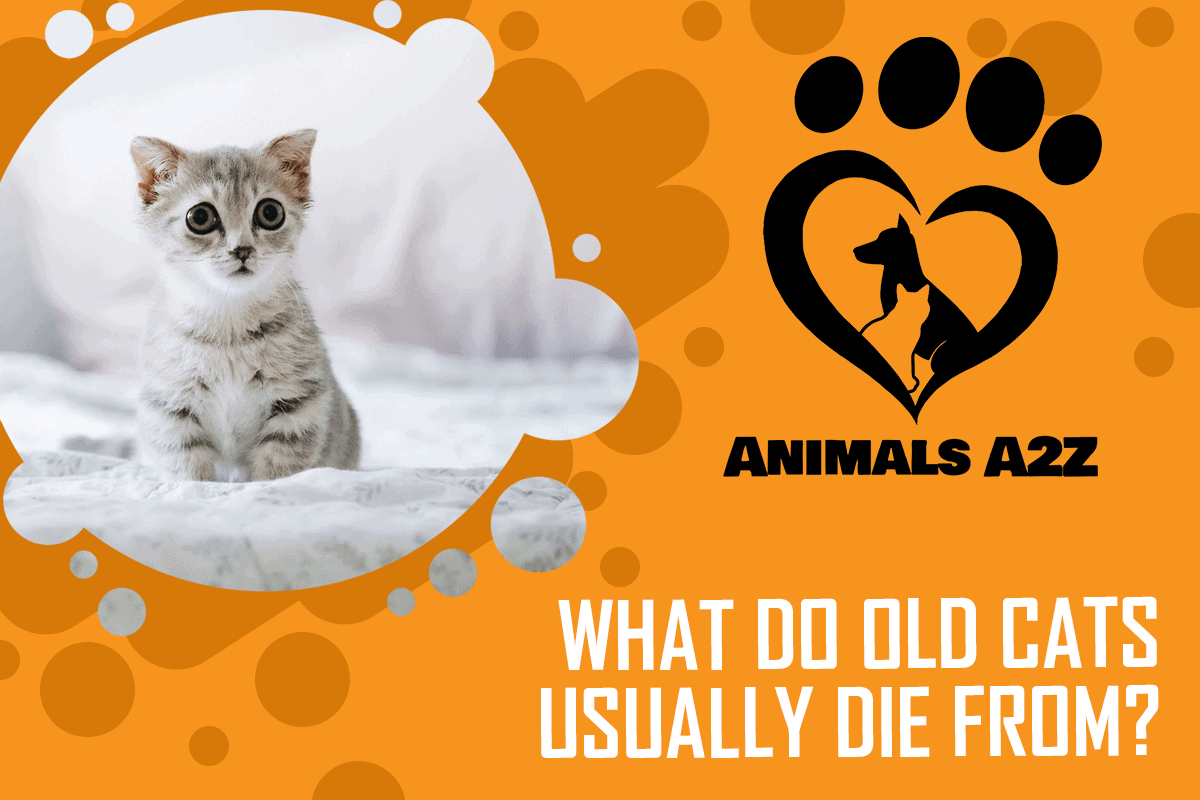While cats can live healthily into their late teenage years and even early twenties, there still comes a time when your cat will start to decline, either due to terminal medical issues or old age. Recognizing the possible reasons for senior feline deaths can help you make the most compassionate and loving choices for yourself and for your cat.
Table of Contents
Typical reasons old cats die
The reasons old cats die are usually kidney disease, heart disease, cancer, dental disease, hyperthyroidism, diabetes, or arthritis. This is all illnesses that get more and more common the older a cat gets, and therefore often are the reason or part of the reason old cats die.
Most common illnesses in old cats
1# Chronic kidney disease (CKD) in Cats
Kidney-affecting disease is the most common affliction in senior cats. Naturally, the role of the kidneys is to act as a filter system and their primary role is to remove waste products being produced by a cat’s body. Once a cat’s blood has been filtered, these waste products are then eliminated via the urine. The moment your cat has damaged kidneys, either because of aging or any other conditions, then the kidneys won’t be able to effectively filter the blood and it will result in waste product buildup in a cat’s bloodstream. The waste product buildup in a cat’s blood is referred to as azotemia.
Common symptoms associated with CKD include a sudden increase or decrease in a cat’s urine volume, increased thirst, vomiting, lack of appetite, and weight loss.
2# Heart disease in cats
Heart disease is also very common in older cats. There are many types of heart disease in cats. One of the common types of feline heart disease is cardiomyopathy, which is a heart muscle disease. Some other types of feline heart disease like degenerative valvular disease can be seen too. No matter what the underlying cause is, heart disease can eventually lead to CHF or congestive heart failure, in which the ability of the cat’s heart to efficiently and effectively pump blood is highly compromised.
3# Cancer in Cats
It’s probably not a surprise that cancer is one of the most common diseases in senior cats. As a matter of fact, there are different types of feline cancer that can affect your cat in his senior years. Symptoms of cancer will depend on what type of cancer is involved.
4# Dental disease in cats
Dental disease isn’t specific to senior cats. As a matter of fact, it’s estimated that most cats over 3 years of age are already suffering from dental problems. Needless to say, it can be a more serious problem for senior felines. Dental problems are painful for your senior cat and it can affect his appetite, leading to weight loss.
5# Hyperthyroidism in cats
It’s a thyroid gland-related disease in which many amounts of thyroids are produce. Excessive thyroid hormones can affect your cat in many ways. Most hyperthyroid felines show excessive weight loss even though they have a healthy appetite. Other symptoms of hyperthyroidism may include an increase in water consumption, an increase in urine volume, diarrhea, and vomiting.
6# Diabetes in cats
Diabetes mellitus develop if your cat has an increased blood sugar or blood glucose level. The most common risk factors for diabetes in cats include leading a sedentary lifestyle and being overweight. Most felines diagnosed with diabetes mellitus may need insulin injections.
7# Arthritis in cats
Arthritis can occur in most older cats but many cat owners can’t notice it. Unfortunately, the signs of arthritis in cats are usually mistaken as a normal change due to aging. If a cat has arthritis, he usually sleeps more, become less active, and may not be capable of reaching elevated surfaces anymore.
[crp]
Common questions about the most common reasons for deaths in older cats
How can you tell if a cat is dying of old age?
Here are the telltale signs if your senior cat is dying:
- Lower body temperature
- Loss of appetite or thirst. For most animals, the severe illness usually develops due to lack of interest in water or food
- Extreme weakness or lethargy
- Hiding at all time
- Changes in appearance
- Odd social behavior or clinginess
What do most senior cats die from?
Heart muscle disease or feline cardiomyopathy and feline heartworm disease are considered the most common reasons for sudden death in healthy senior cats. These common conditions in senior cats frequently give no warning at all. Death can suddenly occur because of blood clots and emboli, as well as severe and sudden rhythm abnormalities.
How do you know it’s time to put your cat down?
Incurable and persistent inability to eat, signs of pain, discomfort or stress, difficulty in breathing, and vomiting are all signs that euthanasia must be considered. As a cat parent, you know your feline friend better than anyone, so try to make a good judgment on your cat’s quality of life.
Conclusion
Older cats might be plagued by multiple diseases in his senior years. Some cats may suffer from several diseases, which makes diagnosis and management extra challenging. If you have a senior cat make sure that he receives regular veterinary care since easy diagnosis of senior feline diseases might help extend the life of your cat and significantly contribute to the quality of life of your feline friend.



